I’m taking a couple of weeks off from the Marvel reviews (mostly because life is getting in the way of being able to watch all of the movies)… so in turn, I’m going to instead make one of the more intentionally provocative titles I’ve done on the site. There’s just been so much news around video games that has me dealing with an internal struggle with the things I love so much, video games, where I’m seriously wondering if it’s worth the cost to keep on buying and playing them.
The Actual Ethics and Morals of Video Games
Before I talk about video games, I’m going to talk about American Football (hereafter, I’ll just be calling it football… just how our American brains works). I love watching football, have my favorite teams and traditions which have spread out to my family. My wife shared with me that she was pregnant by giving me a gift that had a newborn onesie of my favorite team inside. There is a newborn shirt of my favorite college team that both of my kids wore in the first few days of their lives that is in a shadow box that hangs in my office. I have pictures of us all dressed up in team apparel for the first games of the season, my daughter invented a “touchdown dance” when watching games.
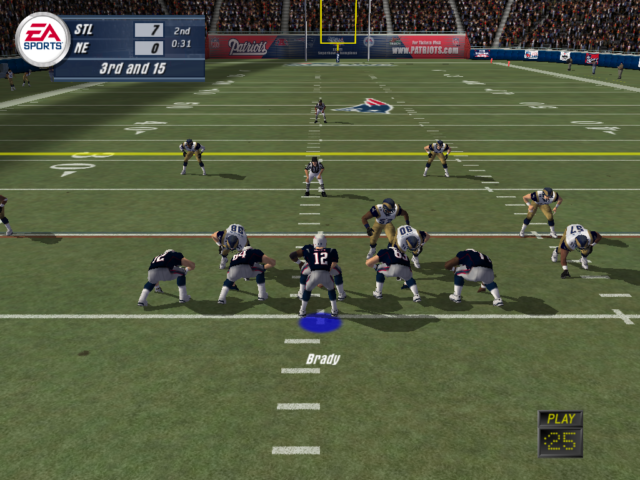
Over the last few years, I’ve been struggling with the fact that the thing I love, that was part of family rituals that I cherish, has been doing so much damage and harm in the world. It uses up and destroys the lives and bodies of kids dreaming to make it big, makes billions of dollars out of unpaid labor of college kids working more than full time jobs, and uses up and disposes of the few who are lucky enough to make it professionally. It destroys the bodies of young men that play it, and as we’ve learned in recent years, their minds as well.
It’s more than just that, though. The sport itself in schools is simply a cancer to budgets and education in general. A study in 2011 showed that there were eight major college football programs that operated in the black. Eight.The rest have to subsidize those programs by taking money from other things, like paying professors and instructors (whom are woefully underpaid despite popular conceptions, and most universities resort to abusing adjunct instructors… but that’s a different rant).
In the professional space, you have billionaire owners looking for handouts to build crazy stadiums from cities that will never recoup the cost of it through taxes, traffic, or anything else. It’s hard, if not impossible, for me to look past these facts and just “enjoy the game.” I can hope that it will change, but history tells me that’s unlikely.
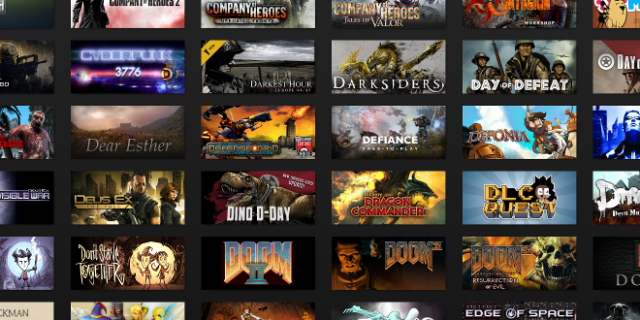
When it comes to video games… that problem is multiplied tenfold. There’s no way to say this nicely… the AAA, big studio and publisher apparatus that dominates the industry in the hobby is simply a rotten pile of crap. We see companies that post record revenues and then lay employees off. The monetization of games is the most important thing, instead of making a good product. Companies hold contempt for their customers, focusing on the abuse of a small subset they deridingly call “whales” to subsidize, and constantly decree that one mode or another is dead despite overwhelming evidence to the contrary.
There has been a whole string of things coming to the surface about the rotten nature of the video game industry lately. Toxic cultures and workplaces, companies forcing their workers to put in hours that are simply deadly (and counter-productive), selling unfinished products, exploiting consumer behaviors, and a whole litany of other nonsense that I don’t even feel like finding words to summarize.
The Industry Abuses Workers
There has been a reckoning lately as many people are raising their voices and telling the stories about the ongoing and terrible stuff happening of so many industries. Game development, and IT in general, isn’t an exception… if anything, it’s a lot a lot more deeply entrenched in there with the very concept of “bro culture” having come from the development and startup sector. I won’t get into the discussion about it, debate both sides… I’m just going to let Idris Elba be awesome and sum it up well.
On Tuesday, May 7th, there was an organized walkout at Riot Games, maker of League of Legends and the organizer for the biggest eSports events around. It’s not rumor that they have a terrible culture with a history of harassment… it’s fact. When the well-researched article by Kotaku brought it to light, the company didn’t deny it, they confirmed that there are problems and they were going to work to improve it. Then they fired two devs for “violation of their social media policy” after they called some manbabies in the community manbabies for throwing a tantrum over being shut out from a discussion forum aimed at women and non-binary community members.
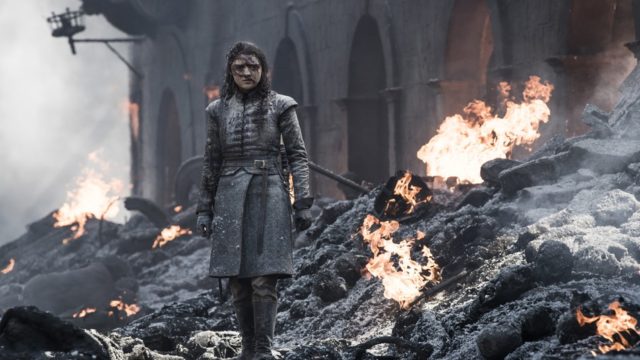
The walkout was just the latest step in that, because the way that Riot is trying to dodge responsibility is by using Forced Arbitration for any harassment claims that are escalated by employees (not just women, anyone… and often for any dispute with the company). If you’re not familiar with it, it’s a binding system that favors the employer and removes your ability to challenge a company in court. It makes it harder to challenge things like wage theft and unpaid overtime, and the findings or conclusions in arbitration do not have to be disclosed publicly, which means companies can continue to hide their misbehavior. Which Riot seems to be hoping for, given their punishment of people who are speaking up.
What we’re seeing here is likely just the tip of the iceberg for this problem; in February, a similar walkout happened at Google and the company changed to remove the requirement. I don’t expect a lot of other big companies to follow suit and give power back to workers… that’s just not how it works, until some other changes start to happen in the workforce. I’ll talk about those more specifically in the next section… spoilers, it involves the “U” word: Unions.
I remember the moment at my last job when I knew the company wasn’t going to be my long term future. During a department meeting, a manager got up and started to praise one of his team members because there was a system issue and she stayed at the office, and awake, for 32 straight hours to get the problem solved. He talked about her dedication (which she had), how important it was to get it fixed, her commitment to the customer, and the hard work she did coding to get the issue fixed so they could deploy their app on time. Her reward for that? A certificate and some claps in a meeting.
I believe in core of my being that the manager should be punished for letting one of his employees do something like that. He should have been fired that moment, and it shouldn’t have been something we clap over and give awards for. Companies talk about the idea of work-life balance (notice that work almost always comes first), but very few live up to it past token talk. Luckily I’m no longer there and work for a company that does take it seriously, but I’ve come to appreciate how rare that is.

If you’re not familiar with the word “crunch,” it’s a term coined by the game industry (not not necessarily unique to it) that describes absurdly long work-hours for developers and other employees to get a product out the door. It can last for weeks, months, or in the case of Bioware and its “Magic”… years. It’s not something new by any means, and the outrage isn’t even new over it; EA caught all kinds of flak for it back in 2004, when they still made games, even games people liked, by working people almost to death.
I don’t work in the game industry… but I do work in the tech industry and make my living in an ecosystem that often thinks timelines are more important than the person spending the time. My last job was evident of that, and that event wasn’t the only time something like that came up; in one case, someone ended up dead because of the overwork. It’s something pervasive in the industry, but it’s at its worse in game development circles.
The current flames started when Dan Houser, one of the founders of Rockstar games, bragged about the team working 100-hour weeks to get the game out the door. He later tried to backtrack and say that it was only the writing team, not everyone, and only for three weeks. In plenty of interviews after it first blew up, it got a lot murkier (he both was and wasn’t lying), but none of his backtrack made it better.

There is a lot of research that shows exactly how long people can be effective working before diminishing returns sets in. More than that, there’s also a point, around 50 hours per week or so when it falls off sharply, and another at 55 hours where productivity goes over a cliff. When it comes to creative fields (like writing and artwork), this translates to more time being spent to do the same thing. In engineering fields, like programming (which is also in many ways creative), the biggest thing that comes with overwork is introducing defects and bugs that have to be fixed later. Most research pins the optimal hours worked, for health and productivity, somewhere around 35-38 hours.
Let’s drill into that bug idea for developers for a bit, because this is something I’m very familiar with. There’s a well-known chart that’s used in support of test driven development (TDD), of which I am a proponent, that talks about the “cost” of defects during each part of the software development lifecycle. The general idea is that the earlier you find a bug, the easier (and cheaper) it is to fix, often by a great deal. Find it when developing locally and it’s really cheap to fix, find it in QA and it’s mostly time. Find it after it rolls out to production and the cost is gigantic, in time and effort (and sometimes more) to goes up exponentially.
It should come as no surprise that the biggest victims of crunch time in recent years have been QA testers. Worse, they’re often some of the most poorly paid workers, typically on contract and people just trying to get into the industry, being forced to put in 80+ hour work weeks to find and validate bugs.
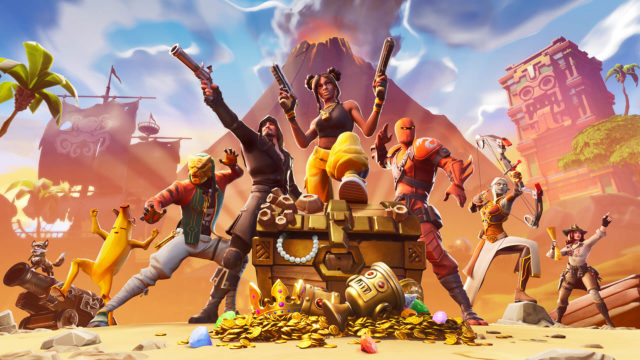
The contract workers are the way a lot of big studios get away with the abuse; they bring on people who don’t have the normal protections an employee gets and likely don’t get overtime. As one senior manager at Epic, makers of Fortnite, put it recently: “we can always get more bodies.” Something to remember when they are trying to claim the moral high ground and saying they’re fighting for “developers” in their revenue sharing and payouts for exclusive games. They aren’t, they’re abusing their workers to get the money to pay that, and developers are just disposable parts to them.
That’s why we’ve seen so many layoffs, consistently, at game publishers and developers. Companies like Activision can post record profits (and then large drops) and fire the people who are likely to turn it around for them. The big executives who mucked the whole thing up get to stay though… and are even rewarded for it. The developers, QA, and artists who do the work are brought in on short term contracts, or laid off immediately after the game launches, and it takes a huge toll on the morale and well being of those affected.
It’s a terrible cycle in games development: lower pay than comparable industries, a culture of crunch that destroys workers mental and physical health, and then layoffs that come after completing a project. The problem of crunch is so bad that it’s become an accepted norm, with a lot of independent and small studios baking that into their estimate. That’s not a sign of a dedicated studio, it’s a sign of bad studio and project management.
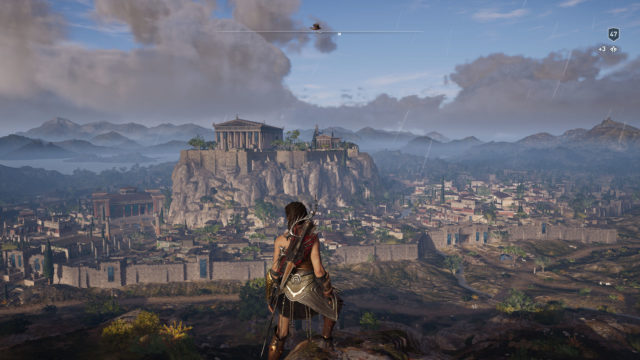
That being said, there are some companies that do buck this trend… sadly, only one of the big AAA 3rd party studios seems to try and treat their employees as important parts of the team and not just bodies to shuffle through: Ubisoft. When asked about how they handled crunch, the lead for Assassin’s Creed: Odyssey answered it in a way that should satisfy – they don’t crunch. If something lags, or something needs more work, they’ll either delay it, push other features, or bring on temporary contractors to fill the void (there isn’t anything wrong with contract work, so long as it’s up front on scope and hours).
Nintendo is another company that follows a similar pattern; when asked about it, former Nintendo of America CEO Reggie Fils-Aime said they do something similar to Ubisoft, and bring on contractors. Given the number of long-term studio teams within Nintendo, that seems to be a way to sustain over the long term. As a company, Nintendo has always been keen on protecting their long-term health over the short term; when the WiiU missed their expectations, executives voluntarily took a pay cut so they wouldn’t have to lay off employees. They did the same thing with the 3DS had to have a price cut in order to get past slow initial sales. I can’t see any of the suits at 2K, Activision|Blizzard, or EA doing the same thing (despite being listed as the most overpaid CEOs in the world).
Still, the norm for the industry is one of exploitation. Maybe this will be the time where the backlash starts to set in and changes come, even though it didn’t 15 or 10 years ago when similar things came to the surface. The size and scope of the companies is making it impossible to ignore the disparate nature between what the companies make and what the employees are getting. There is a loud and growing call for development teams, and other support staff, to unionize as a way to protect those workers.
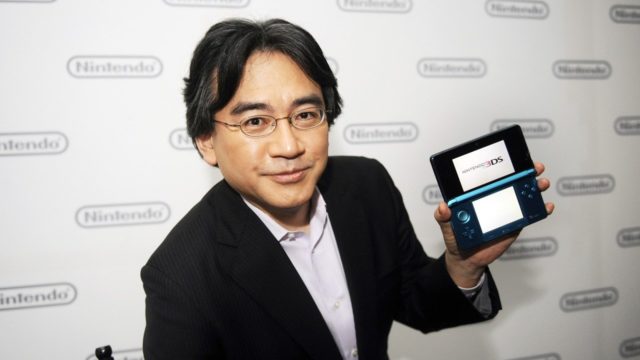
I won’t debate the whole union question here… if you’ve read my stuff, you can guess where I land on the issue. But there is a good analog to what we’re seeing in game development where unions formed to protect workforces where the power shifted too much: entertainment. Hollywood is highly unionized, not just with talent (the Screen Actors Guild or the Writers Guild of America), but also with production support staff. If you’ve read the history of filmmaking, it’s not hard to find why that movement was so important.
That has already started to make inroads into game development, specifically when it comes to voice acting and capture. If there was any part of production that is misunderstood and undervalued by fans and publishers alike, that would be it. Their strake, which ended last year, was trying to bring the industry up to just “ok” in how the treated these actors. Companies do everything they can to try to avoid it, like Gearbox, makers of Borderlands, using employees as unpaid actors and then fighting against paying them later on (even when they voice iconic characters).
The simple truth is that working in the game industry, overall, is simply awful, and it grinds people up and does lasting damage to the workers that make the products we love. I own Red Dead Redemption 2, but I’m not certain it was worth the price to those people to get it out, and would have gladly waited a few more months for the game if it meant that the writers could go see their family at night and sleep somewhere other than at their desks.
Of course, as bad as the companies are to their workers… how they treat their customers makes me wonder how they ever sell anything.
Roadmaps are the new Pre-orders
The internet made it harder to trick customers into buying a bad product… kind of. It actually made it a lot easier for people to deliver a bad product, but it made it far faster and easier to discover that something was bad and warn others. This has become especially evident in bad movies, where reviews can kill attendance within a day, or games, where bad press and launch can sink sales shortly after launch.
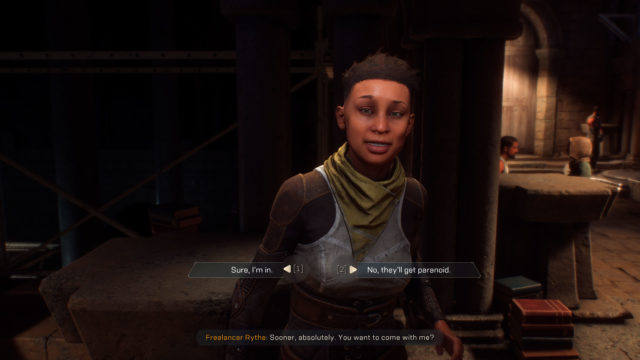
Movies have felt this to a great degree… I hated Batman v Superman: Dawn of the Marthas, and shared it here, but it made money, though nothing near Marvel movies make these days. By the time Justice League was around, and everyone was tired of that whole shtick, the word of mouth sunk the movie at the box office and it was gone fairly quickly. The whole franchise was kind of put on hold, and future plans shelved (even though the just-OK Aquaman managed to make a boatload of money). Rotten Tomatoes is a big part of that, even though it’s also become a tool for trolls as well, and even though everyone loves to hate on critics… critics are a big reason that drives it.
It’s been an escalating war between consumers wanting to know if a product is good and companies trying everything they can to get the cash no matter what. Because customers were selling back games, they introduced “online passes” that had to be used to activate games. I may have praised Ubisoft earlier, but their pre-order bonus stuff is so noxious that they have to release complex tables and support documents to figure out what the hell you are getting with games anymore.
Pre-orders were a way of selling a game that might not be good… the reason being that the majority of games will make all of their money and profit in the first few weeks of sales. Unless you have a strong presence and loyalty with your customers (Nintendo), continually put out new content packs and expansions (your average MMO), or tend to drop prices and add support (most Ubisoft titles)… the publisher forgets about the game after a couple of months to move on to the next thing. Except for Bethesda, that just finds a new place to port Skyrim to.
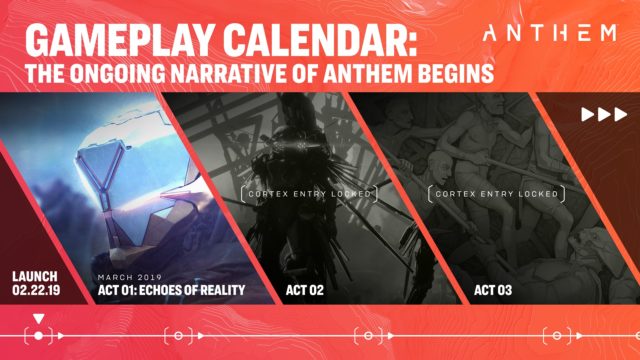
That isn’t a bad thing if the game launches with a lot of content and a complete story and/or gameplay loop for customers to enjoy. Breath of the Wild hasn’t gotten any serious updates (unless you like VR and vomiting) in over a year… and even with the price premium that old Nintendo games carry, you are going to get your money’s worth if you go pick it up today. Even if you never grab the DLC or connect your Switch to the internet to get updates, you will still have a fun game to play.
Recently, the “Live Service” game that expects you to devote hours of time and daily play for the trade-off of always being online, makes it so you are making a gamble when you buy a game on the promise of continued support. That isn’t by itself a terrible thing… it’s basically how every MMO makes its money and retains players. However, what we’ve seen here is a “get it out the door” mentality that’s gripped the worst publishers like a fever dream where they launch a AAA, $60 base game that has basically nothing in it but the promise of what comes next and a “roadmap” of content.
Probably the most famous example of this in recent history is No Man’s Sky (which, it should be noted was not really a AAA, but it was heavily featured and backed by Sony). It was a game that showed off the worst elements of fanboy culture (how can you even be a fanboy for something that hasn’t launched, anyway) and the hype machine run amok.
If you are lucky enough to have missed out on playing No Man’s Sky when it launched, let me give you the shortest review I have ever written for this site:Â it was garbage (zero out of five stars). It was a boring, buggy, stock survival game with limited options. Sure, there were some fun things in there, but the entire of the gameplay loop consisted of this…
- gather stuff on a planet so you can take off and go to another planet because this one is trying to kill you
- repeat
Sure, there was some exploration, random goofy looking monsters, words you could decipher, and a “surprise” ending that wasn’t an ending, you just started over… but the game itself was boring trash. Yes, since that time they’ve patched in a lot more stuff (though I’d argue that the basic gameplay loop is still flawed and boring), and to their credit, they didn’t charge for those updates… but it still came out as an unfinished game that made millions off people with little recourse to get their money back.
Would you buy a car with the promise that you get doors and a steering wheel, along with a piece of paper that tells you exactly when you can get your seats, engine, and tires? Maybe Tesla owners (I’ve already pissed off enough people in this article, I’ll hold off on that for now), but most others would say “come back to me when it’s done.” Video game publishers, though, have long looked to customers to subsidize the budgets of multi-million dollar games, when they have more than enough to support the development of it.
All of the risk here is on consumers, not the publishers (risk for the developers depends on their relationships). Every time you get a game like No Man’s Sky or Destiny that fix their problems, you’ll get several more that will forever be broken. Take Batman: Arkham City, a game so bad on the PC that they had to pull it from sale because it couldn’t be fixed… only later to re-release it, working just enough to get by but still a buggly, nearly unplayable mess. They offered some refunds, assuming you bought it very particular places in a specific window, but otherwise they weren’t going to fix it. I mean, they did fix it, by re-releasing the game as a “Game of the Year” edition… and charging for it again.
Loyalty is Earned, and can be lost
EA, the most popular company to dump on (and they deserve every drop), has walks a path strewn with the corpses of developers that they have purchased and closed down. It’s a very familiar pattern:
- Studio makes a well received and beloved game
- Studio gets purchased by EA
- EA lets the company make maybe one more game
- Studio is forced to make a game they have no experience in
- Game is poorly received or “misses expectations”
- EA closes studio
You can count the number of studios that are like this. Visceral made Dead Space and Dead Space 2, considered some of the best horror and Sci-Fi games ever made and spiritual successors to System Shock. While they were formed under EA, they proved that there was a market for horror games. It’s just that the market was never going to be in the same realm as your Call of Duty and Maddens.
EA came along and forced them to make Dead Space 3, which threw away everything that made the original great, broke it to fit in monetization and micro-transactions. It was a critical miss, customers didn’t like it, and it “missed” some incredibly unrealistic expectations. They were then moved to go work on a Star Wars title, which got cancelled and the studio was closed.
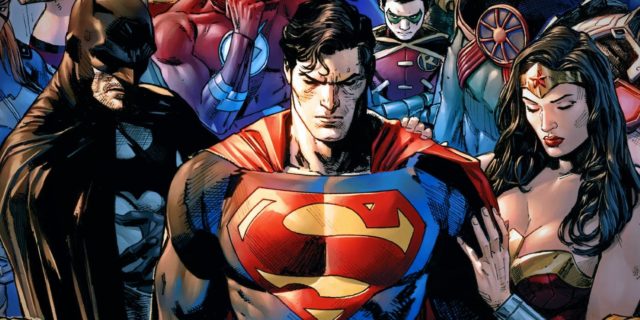
The reason behind laying off all those people and abandoning a promising franchise: People aren’t interested in single-player games. It’s something which EA has repeated every year for a decade now, and it’s still complete BS… the sales numbers for last year say something completely different. Six of the top-selling games had no multiplayer (or a limited multiplayer that was introduced later): Red Dead Redemption 2, Spider-Man, God of War, Far Cry 5 (had co-op), Assassin’s Creed: Odyssey, and Monster Hunter World (limited co-op multiplayer).
There is an interesting difference on some of these titles (Spider-Man and God of War, specifically), as well as FBTB’s darling, Nintendo: they are platform holders. They want to sell Switches and PS4s, and understand that a system with no unique games will struggle in the market. Ask Microsoft about that fact. There’s limited success in trying to push out a micro-transaction laden game that will alienate your market; ask Microsoft about this as they’ve put more and more stuff like that into Forza and it’s visibility has declined.

Leading up to the release of No Man’s Sky, there was a rabid backlash by the “fans” of the game against anyone who may have raised concerns or dared say something negative about the game… or even reporting on things like the game being delayed. Because it’s the internet, that took the form of death threats, screaming, and terrible behavior (warning to anyone who doesn’t understand social media and it having consequences… that stuff can follow you around when you start to do things like look for jobs and get on with life). We’ve seen that cycle repeated again, and again, and again, and… you get the point.
In recent years, a common line of justification for the bad behaviors, like road maps and pre-orders, is that “games are expensive to make” and we have to expect to support the companies that make games. Or, the guilt-driven offshoot, that if we don’t support the games, a lot of workers will lose their jobs (which, as I pointed out above, they will anyways in bad companies).
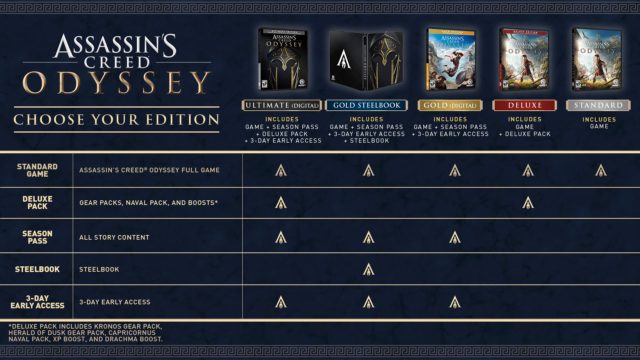
Games are cheaper today adjusted for inflation, and they can be more expensive to make. But they also sell hundreds of times more copies, there is a ton of ways that they can make more… and a lot of that same price is just hand-waving to the fact that games have gotten more expensive. Toss in collector’s editions, season passes, DLC packs, and you get a more accurate idea of what a game really costs to own, and it’s a lot higher than $60.
The developers themselves can shoulder a lot of the blame for the shift and hostility to any negative opinions or coverage of games that may be critical. Randy Pitchford, CEO of Gearbox (the studio behind Borderlands), on top of being what seems to be a pretty terrible person, recently attacked Game Informer because they pointed out something he said was wrong. Or called something shoddy journalism when they broke an entirely accurate story that Borderlands 2 remaster was coming out… you know, doing exactly what a good journalist does.
Developers try to build up this idea of loyalty to the brand, that you should love and trust what they’re doing based on the name alone. Customer loyalty and satisfaction is an important part to the success of any business; as the adage goes, it’s more important to keep customers than to find new ones. To do that you have to actually make your customers happy; it cannot just be them leveraging their name and expecting everyone to play along with it. Even some of the companies that play on this the hardest, like Apple, understand that and keep looking for new ways to get people buying rather than just trying to trap consumers (like, say, your internet provider).
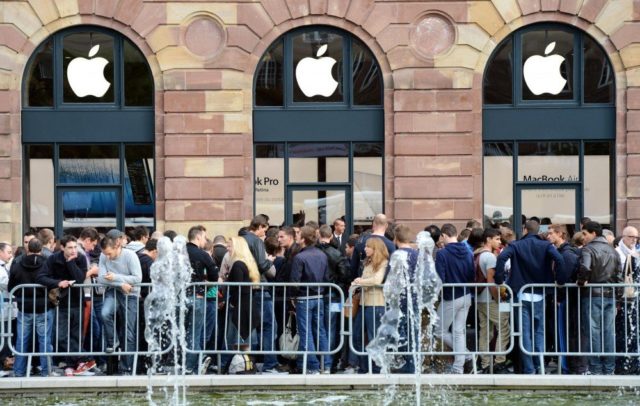
As consumers, we have only have one point of leverage: our money. Petitions don’t work, threatening people that are involved in development doesn’t work, and attacking people who don’t agree with your position only works if you were trying to be a jackass and make people judge you for it when they find out. Not buying something, however, can cause change… and explaining why to others can do the same.
The Fall of Bioware, Bethesda, and Blizzard
In the past year, three of the titans of AAA games, which had the biggest loyalty and following, have fallen from grace in the eyes of the fan. Bioware has been responsible for some of the best RPGs ever made, including the what most people would call the best Star Wars game ever made (not me though, I have that to Jedi Knight). Bethesda brought the world the Elder Scrolls series and rescued Fallout and brought it into the mainstream. Blizzard was probably the most beloved developer out there, and even if their plans sometimes missed the mark, you knew that they were making something with passion and thought.
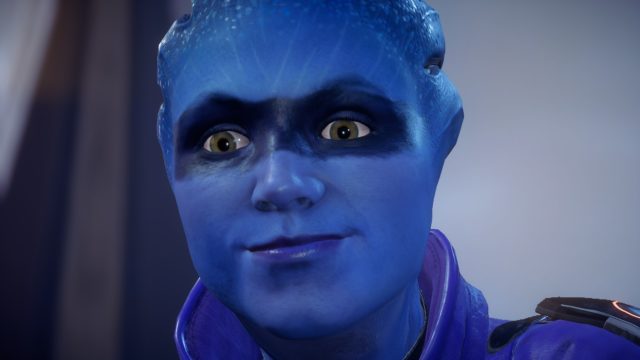
The Mass Effect series, even with the ending controversy of the third one, is still probably one of the best Sci-Fi games ever, and it’s certainly one of my favorites. Even the maligned Andromeda was a better-than-average game, but the story of what went wrong with it should have served as a warning for exactly how bad things were going to get for the company. Short version, meddling and mismanagement undermined that game, and the studio itself was focused on getting Anthem done. We know how that turned out, and based on a similar piece, we know that they had no idea what Anthem was going to even be when they were cannibalizing the Andromeda team to make Anthem.
In five years, Bioware had gone from making the incredible Dragon Age: Inquisition to the good gameplay idea with bad everything else Anthem. Customers that forked out a lot of money on the game are left with an unfinished product, which launched with the obligatory roadmap, and promises of more to come and lots of learned. Bioware offered up an apology to all the players who had supported them and purchased the game, despite the problem. Along with that, they listed out all of the stuff they were working on, bugfixes and content, and more promises.
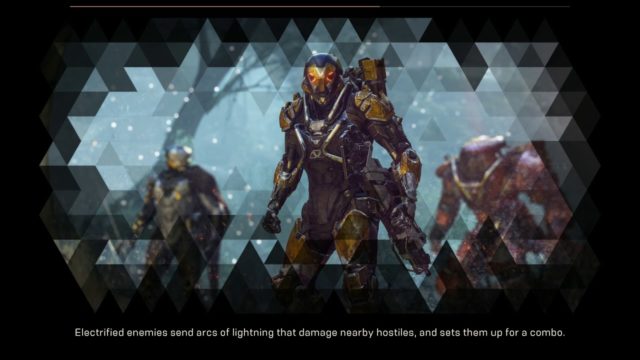
Here, three months after launch, it’s fairly safe to say that all of the promises have been broken and, if anything, they’ve been actively punishing the players who are sticking with them (I particularly like how the Onion satirized it… because it’s not far off from the truth). At one point, they introduced a bug that made the loot drops better, before “fixing” the bug and nerfing them at the same time. They intentionally removed a reward that enticed players to play, and accidentally removed boss loot, which was the only reason to keep playing the game.
That vaunted road map, the promise that the game was going to be “made better,” has been delayed, if not shelved entirely. EA denies that they’ve abandoned the game, saying that they believe it in… but they said the exact same thing about Andromeda. And then, within a few weeks of saying that, cancelled any DLC or story support (something that was actually a huge promise… Andromeda started shaky but finished strong and left you wanting more to play). The head of the studio called it a defining moment, who joined just after Andromeda launched, promptly went and made a worse game.
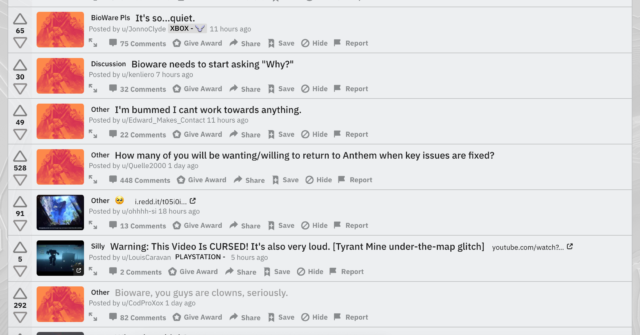
Now, players who paid are left with a game that doesn’t have enough people to load certain game modes and no look that it’s going to get any better. Currently, looking at TwitchTV, there are 91 people watching video on Anthem. That’s 1/10th of the viewers that are currently watching Breath of the Wild, a two year old game on a platform that requires extra hardware to even stream. It doesn’t matter what game Bioware announces next (likely Dragon Age 4), or what they promise, what they say, or what they offer… I’d be hard pressed to even pay attention to it until well after it was out.
Of course, as bad as Bioware was, I don’t know that it holds a candle on what has gone on with Bethesda when it launched Fallout 76. This one hits really close to home for me, because I was really excited for the game. I had the big edition of it pre-ordered, along with the expensive PipBoy replica and some other things, coming it to a big “I seriously don’t need this crap” $500 or so waiting for the game. I was able to cancel them, started to question if I wanted it, and thankfully, dodged Bethesda telling it’s fans to piss right off when they did actual false advertising and failed to deliver their products (and insulted people who were upset over it).

Unlike Anthem, Fallout 76 doesn’t seem to be like it’s abandoned and dying… it’s just seemingly capped out. There are a few people who like the survival mechanic to the game, and probably like the IP its based on, that keep playing it. However, the game has seemingly missed sales expectations in a big way, it’s still riddled with bugs, and there is nothing on the horizon that says they’re going to pull a No Man’s Sky out of their asses and turn it into a game with more stuff and broader appeal. But hey, rumor is that it will get a Battle Royale Mode, because everything gets one of those. I think even we may launch a BR mode eventually for our articles (I’ll win on word count alone).
Bethesda’s fall from the weird and special place it had with fans, where bugs were something endearing and loved instead of the warning that they should have been to avoid their products, wasn’t just on Fallout 76. Coming out of E3, it seems pretty mind-boggling where we currently are with them. 76 was a lot of it, but also the release of Elder Scrolls Blades, which is an even bigger shameless cash grab than the aforementioned Fallout game was. In part, it shouldn’t be too big of a surprise… Bethesda is responsible for Horse Armor after all, and has been consistently trying to monetize the things that their fans do for free.
However, their support of that community that could make and tweak the game, turning it into something special and unique, is what gained them the good will and willingness to look past so much of the other stuff. Their recent offerings undid that, and none of the promises to support it have ever materialized, if they ever will… Bethesda has banned players for using mods in Fallout 76. Well, that and they’ve banned someone for loving and playing the game too much.
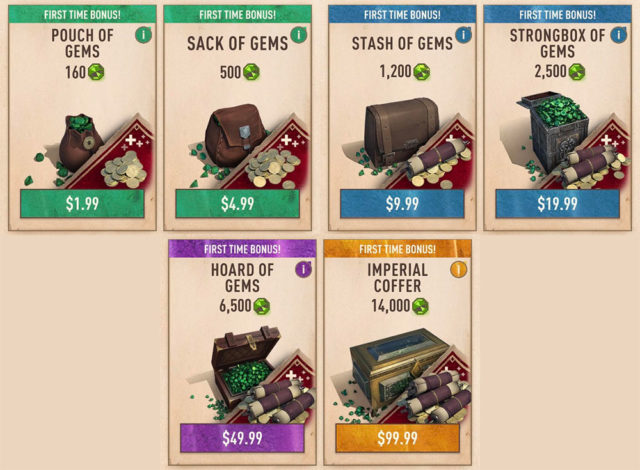
I’m a self-professed fan of Blizzard, though I don’t claim that title all that often. I have a WoW subscription, but when it runs out in about two weeks, I doubt I will keep going, even though they are bringing out their big patch for the current expansion in a month or two. I own every game that Blizzard has released dating back to the original Warcraft. In fact, I own every Collector’s Edition of every Blizzard game dating back to Warcraft III.
My personal relationship with their flagship title, World of Warcraft, is long and full of a lot of ups and downs. I’ve played since Beta, and been active more than not, though I’ve not been an overly dedicated player since the Cataclysm days (which burned me out for raiding and running a guild).
I loved the previous WoW expansion, Legion, which I saw as a return to form after a few lackluster outings, and was extremely excited for their new expansion, Battle for Azeroth. That was in spite of the fact that I think the “War” part of Warcraft is the most boring and played-out part in the game. At this point, we can call that expansion what it is: a complete dud. It’s strange, because the story isn’t bad, it’s just… it’s just that once you’re done with it you get a bunch of boring busy work grinds that aren’t especially rewarding.
That being said, a lackluster expansion wouldn’t really be enough to dislodge the fandom; there’s been lackluster stuff before. Legion was great, and they were on a high point, which I think that caused a lot of us to ignore the problems that were going on with the company because we were focused on the game. It started with a lot of high profile departures from the company, the biggest of which was Chris Metzen. Blizzard also had a surprise pair of hits on their hands, with Overwatch and Hearthstone, which let them tap into that rich vein of awful that is microtransactions. I mean, I don’t mind RNG in card game games, and I’m a bit more forgiving of them in F2P, but the loot boxes in Overwatch remain odious and terrible.
Overwatch is curious, because at its core, it’s a very fun game. It’s unlike anything that Blizzard had done before, and still stands out as a unique character shooter that worked when most others failed. At the same time, it’s been eclipsed by the bigger Battle Royale craze in games like Players Unknown Battlegrounds, Fortnite, and new Apex Legends. Fortnite has its own raft of ethical problems when it comes to pointless crunch while it’s owner is throwing around money like crazy and forcing players on to its sub-par platform (we got a real Monkey’s Paw wish when we wanted Steam competition by Epic being the one to take them on). Their team is really good at putting together cinematics, but the content has been a drip-feed at best.
Hearthstone has lost the heart and soul of their dev team, and a lot of other core people along with it. They’ve ramped up the number of expansions they release so they can force old cards out and get more transactions, while just breaking apart the meta and generally annoying the most dedicated fans, causing them to leave. The company has seen revenue dropping, after doing layoffs in response to their record quarter, and it seems a lot of the microtransaction economy, combined with the fact that they have pretty much nothing coming in the future, seems to shoulder the blame.
Of course, what really turned fans on Blizzard is what happened at BlizzCon last year. For those who aren’t familiar, it’s a convention that caters to the biggest and most hardcore Blizzard fans of their big properties: WoW, Diablo, Starcraft, Overwatch, Hearthstone, and the eight people who play Heroes of the Storm. Instead of pitching a game to the fans, who paid to attend the event and likely put thousands into things like travel in hotel, they came out to pitch a mobile game and then insulted the fans when they weren’t happy.
This was a real “pee on my leg and tell me it’s raining” situation. They were here to celebrate the thing they loved, not see it ignored for some cash grab and microtransaction-laden game done by a 3rd party team notorious for it. The rest of the con offered very little to fans of the other game, and it was clear that all of the brain drain might very well be fatal. Diablo 4 is still nowhere to be seen Activision|Blizzard cancelled any future expansions or work on Diablo III, and I’m honestly not certain that the relationships can be salvaged.
That’s the thing that I don’t know the companies realize, when we look back at all three and how they’ve quickly fallen from grace among the most die-hard and passionate fans. Yes, microtransactions in mobile games make a bunch of money, but they have no loyalty and retention. Those games implode all the time, and rely on predatory practices and exploiting customers to do it. The companies got too greedy, and eventually someone will step in and crack down on it… hard.
Blizzard won’t be going away anytime soon, but they have done some pretty lasting damage to their brand. Other companies will step in and go for the market, and for the first time, a lot of their titles seem vulnerable. Bethesda may have Elder Scrolls 6 coming out sometime around when George R.R. Martin finally finishes Winds of Winter, but other companies are already stepping up to take their place for the major games they offer. Bioware… honestly someone should probably check on them, because EA may have already killed them off and just didn’t tell anyone.
Less than two years ago I would have bought every game from these companies without a thought… and now I’m not certain I would purchase anything they make. I know I’m not alone in that sentiment.
Conclusion
Should you stop buying video games? I don’t know… that’s ultimately something that everyone will have to decide for themselves. At the very least, all of the big AAA studios have given us a multitude of reasons to never pre-order a game. In fact, they’ve given us a ton of reasons to not even purchase a game when it comes out… the move to live services drops the value of a game. If a game is great, it will be great a year later, and there is absolutely no reason for the consumers to subsidize companies making record profits while laying off hundreds of workers.
Don’t believe the excuses, and the lies, that the bad behaviors of the industry are necessary for the companies to be successful. Crunch is abusing workers, plain and simple, and the only reason it’s a thing isn’t for the customer’s benefit, it’s for the shareholder’s benefit. The companies are just hoping you forget long enough for them to go back to it, like they did the last time this came up, and continue to buy the same old crap they churn out year after year.

We need to all get over our Fear of Missing Out (FOMO) and start to put some patience into the purchases; if a company is basing their support on a shell of a title, like Anthem, on how many people they can sucker into paying for it and then abandon it when they don’t… we don’t want anything to do with it anyway. It’s hard to get past FOMO, especially when you have dedicated a lot of your time and money to a game or a service, but all of these companies need a hard reminder that every choice a customer makes should be for their benefit alone, and work towards earning the loyalty back.
There are some companies that seem to deserve some of the trust and loyalty we give them, and understand that dynamic a bit. Nintendo comes to the top of my mind… not every game they make will be right for each one of us, but you know that they’re going to put their ethic and promise into it. Ubisoft is probably the most surprising for me… they have a few of the bad behaviors I mentioned earlier, but they are still focusing on making fun games first and not just building something to maximize what they can sell after the initial game sells. And they manage to do it while avoiding the predatory things like crunch, try to keep their workers, and genuinely seem to want to make good games.
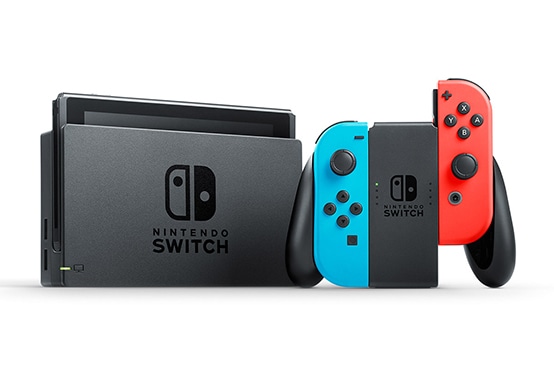
It’s also great to see other companies finding “better” homes for publishers, or take over the publishing duties while they can. Seeing Bungie walk away from Activision, and take Destiny with them, so they could protect their product and people, felt like a huge win. I’m no more of a Destiny fan than I am a Division fan… but I at least feel like they will keep it growing and thriving for the people who do love the game. Activision had no interest in doing that… they just wanted to squeeze out as many micro-transactions as they could.
This isn’t just a rant (though it is a whole lot of rant)… it’s a warning. The video game market has collapsed before, and a few of those times, it didn’t look like it was going to survive. Nintendo’s rise to power was on the back of that, after Atari destroyed themselves out of greed. The once fertile mobile market has hollowed itself out to only a few big, micro-transaction heavy games, and is showing signs of decline as people get tired of the hits. Legislation has been proposed to curb these behaviors and the marketing, and treating predatory practices for what it is.
I love playing Video Games, but I’ve also started to hate what it takes to make a lot of those games. Too much bad behavior has been allowed to become the norm, and if we don’t fix it, the whole thing will come crashing down again. Between the toxicity of the fans, the bad behavior of the publishers, and this expectation of some studios that they can do no wrong… I have to wonder if it’s closer than we think.
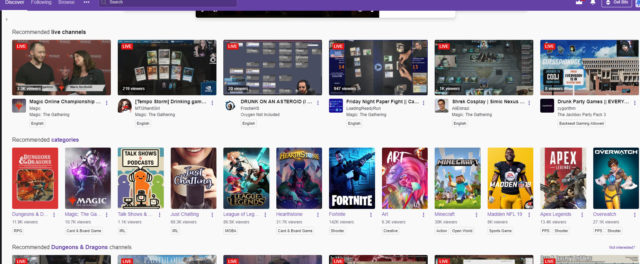
There are a ton of great games out there. Indie development is stronger than it has ever been… get a Nintendo Switch right now and get to playing. Ubisoft has many faults, but they’re still making good games that are fun to play and doing it without abusing their workers. Nintendo is still Nintendo and values their customers having fun above all else… going so far as asking people not to spend too much in their mobile stuff.
Gaming will survive this, but I don’t know what state it will be in when it’s done. We all need to take a moment to look at the cost of what we buy, past just the dollars, and hopefully stop rewarding terrible behavior, or looking past it, because we want a new game. None of us will suffer waiting a few more months for a game to come out, because there are already more games than any of us would ever be able to play.
So maybe it’s not a matter of stop buying video games, and more a matter of thinking about it before we purchase them.

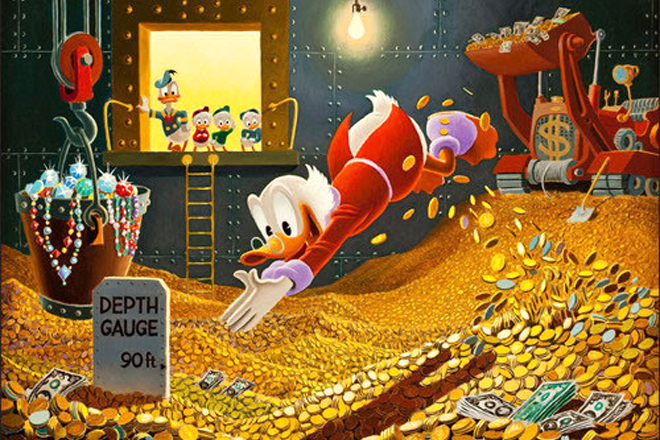
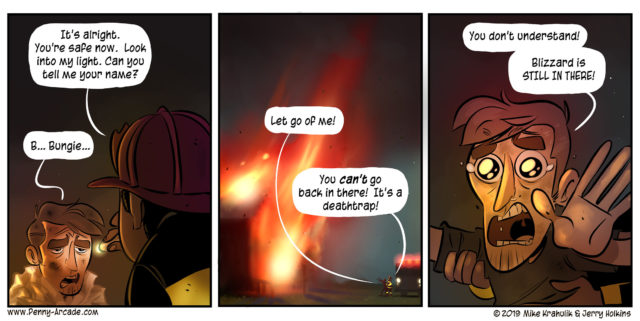








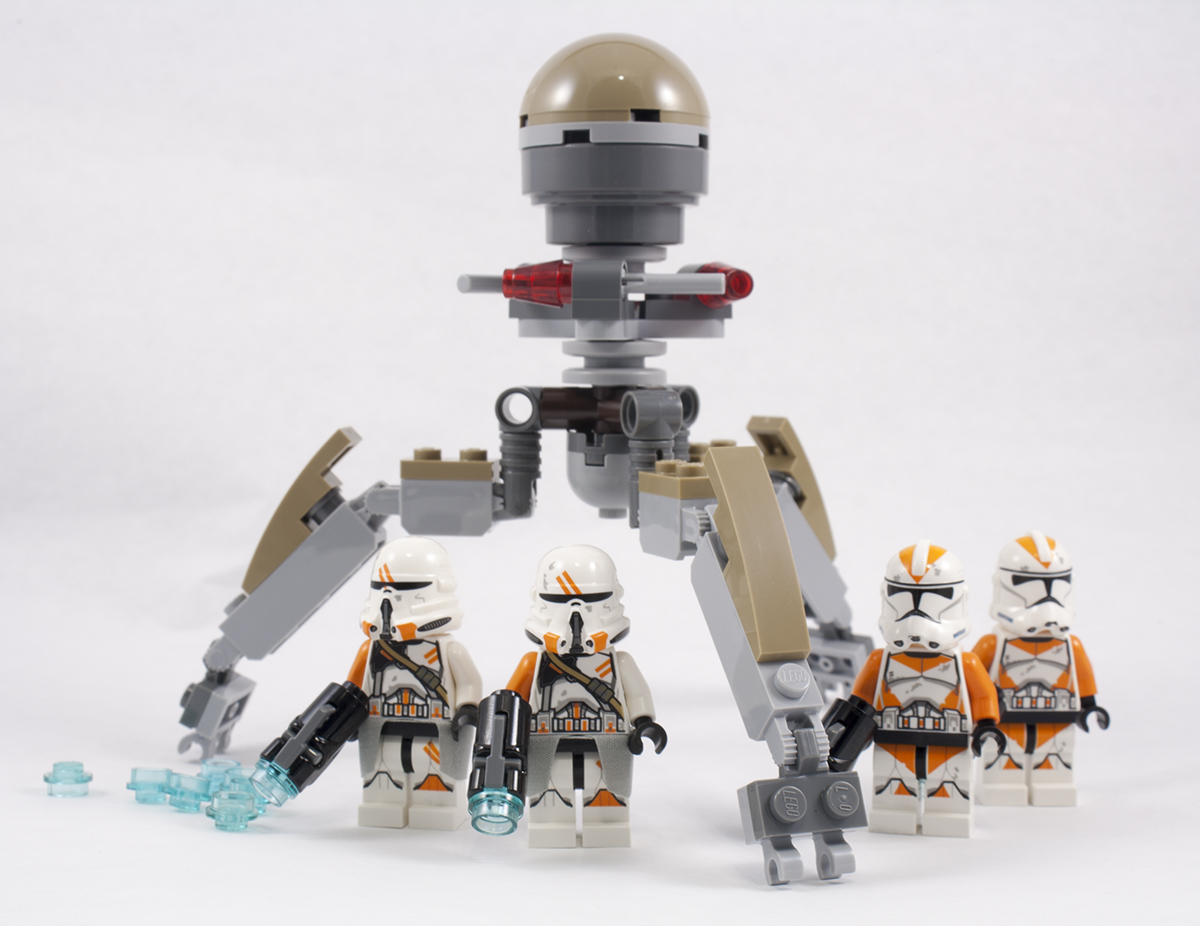




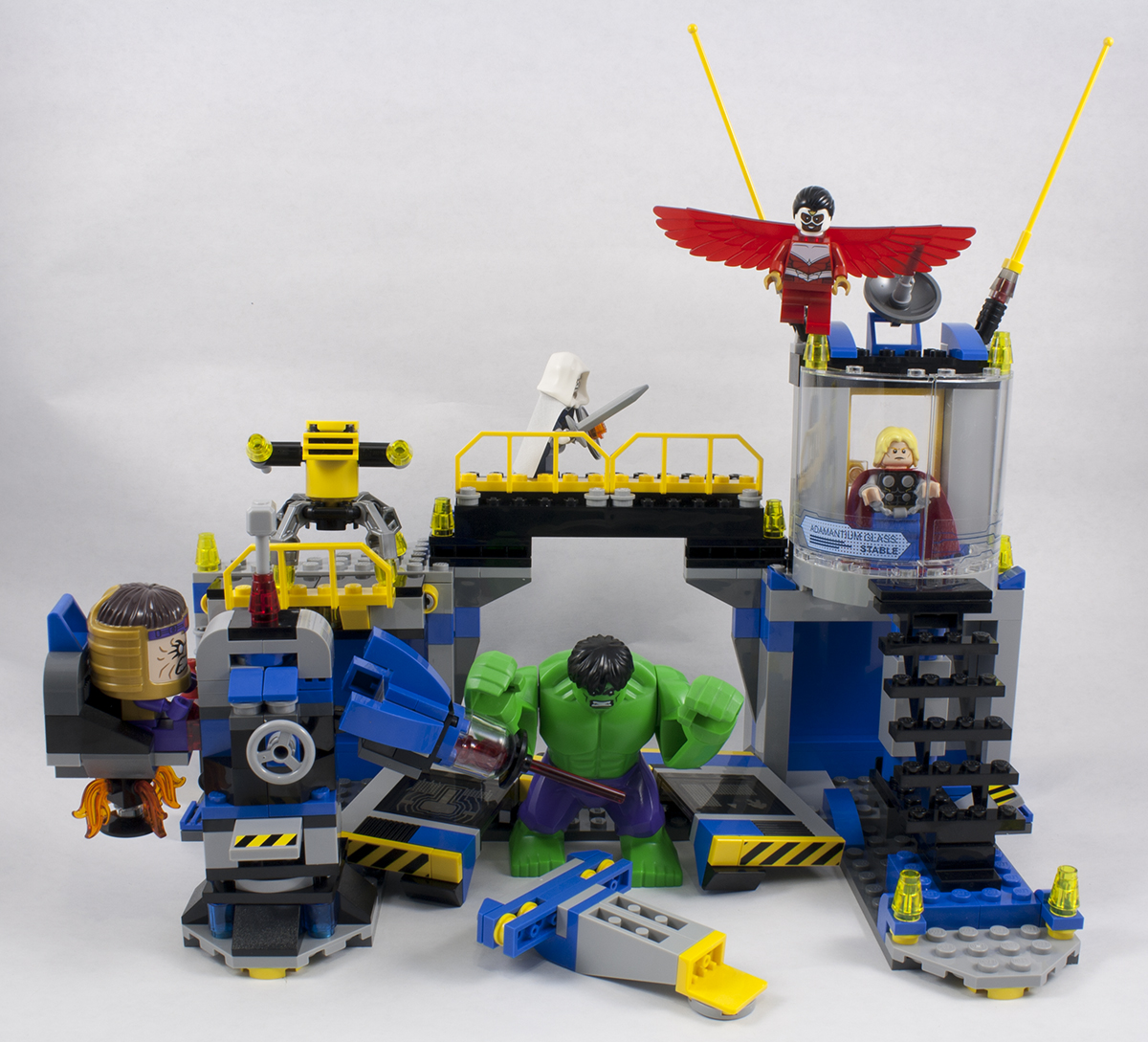
[…] the hype train (but never, EVER, pre-order) at all the stuff coming up. I know, I’ve been a little bit negative on the game industry in general… but Microsoft, in spite of being the 3rd place winner in […]
[…] the pitfalls of being a game developer and the inevitable “crunch” in his piece “Stop Buying (most) Video Games“. I’d be remiss in not mentioning Jason Schreier’s book Blood, Sweat, and Pixels: […]
[…] it. A sequel followed… and let’s just say it was a bantha poo show. I’ve talked about it before, because EA has the worst business practices and the scheme was so odious with Battlefront II that […]
[…] Yes, the bleeding edge games aren’t going to come to the Switch at launch, but if you listen to my advice, you wouldn’t be buying it at launch […]
[…] it was also a blistering indictment of late-stage capitalism, something that is pretty on-brand for me at this point, just made it even […]
[…] should you pay for an unfinished, unrefined game with the hope that the developer will fix it? I know what another writer on this site would say, and I tend to agree with him on this point. It’s one of the reasons I don’t often buy brand […]
You must log in to post a comment.